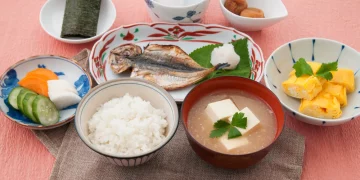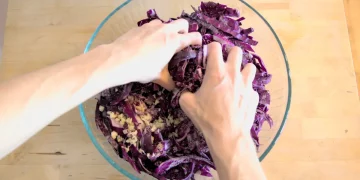We live in an age of unprecedented health information. With a few taps on a smartphone, we can access millions of studies, expert opinions, and personal testimonials about every conceivable diet, supplement, and wellness trend. This democratization of knowledge was supposed to empower us, to lead us to longer, healthier, and more vibrant lives. But for a growing number of people, this constant stream of information has had the opposite effect. The quest for optimal wellness has morphed into a source of deep anxiety, a relentless pressure to achieve a state of perfect, flawless health. This phenomenon, often called “health anxiety” or in its more specific forms, “orthorexia,” turns the tools of well-being into weapons of fear. What begins as a genuine desire to feel better can spiral into a paralyzing obsession with purity, a constant vigilance over every morsel of food, every heartbeat, and every minor bodily sensation. The very pursuit of health becomes a draining, all-consuming project that ironically erodes mental peace—the very foundation of true well-being. When your diet is a source of stress, your workout routine a rigid obligation, and every headline a potential threat, it’s time to ask: has the quest for health become the greatest obstacle to achieving it?
This modern dilemma is a classic case of too much of a good thing. Information is power, but unregulated and overwhelming information is a recipe for anxiety. Our brains are not equipped to process the constant, often contradictory, warnings and recommendations that flood our news feeds and social media algorithms. This environment fosters a state of hyper-vigilance, where normal bodily functions are scrutinized for signs of disease, and every food choice is weighed for its potential to cause harm or bestow salvation. The line between conscientious and compulsive becomes blurred. The goal is no longer to feel good but to be “perfect,” a destination that doesn’t exist. This creates a cycle of anxiety: fear drives obsessive behavior, which provides temporary relief, but the underlying anxiety remains, always searching for the next thing to worry about. It’s a treadmill of worry, and stepping off feels terrifying because it seems like surrendering your health. In reality, it’s the first step toward reclaiming it.
Recognizing the Red Flags: When Healthy Becomes Harmful
It’s crucial to distinguish between a healthy interest in wellness and an anxiety disorder that co-opts wellness language. Here are some signs that your pursuit of health may have crossed into unhealthy territory:
- Compulsive Information Seeking: Constant, frantic Googling of symptoms, diseases, and nutritional information. You move from one deep dive to the next, seeking certainty but only finding more fear and ambiguity. This behavior, often called “cyberchondria,” amplifies minor sensations into catastrophic diagnoses.
- Orthorexia: While not yet a formal diagnosis in the DSM-5, this term describes an unhealthy obsession with eating foods one considers healthy. It’s characterized by a rigid, self-punishing approach to diet where self-worth becomes tied to dietary purity. Eating “off-plan” or “impure” foods causes intense guilt, anxiety, and feelings of being “contaminated” or “bad.”
- Food Fear and Avoidance: The list of “safe” foods shrinks while the list of “dangerous” foods expands, often based on shaky evidence from non-credible sources. This can lead to severe nutritional restriction and social isolation, as fear makes eating anywhere but home unbearable.
- Body Scanning: A constant, anxious monitoring of the body for any sign of imperfection or illness—a slight palpitation, a minor rash, a change in digestion. Normal, fleeting sensations are interpreted as proof of a serious problem.
- Impaired Quality of Life: When your health routines and fears begin to damage your relationships, your career, and your ability to enjoy life. You cancel social plans, spend excessive money on supplements and tests, and your mental energy is dominated by health-related thoughts.

Reclaiming Peace: Strategies for Managing Health Anxiety
Managing health anxiety is not about abandoning your health goals; it’s about changing your relationship with them. It’s about shifting from a mindset of fear to one of trust.
- Implement a Digital Detox: This is the most important step. Limit your time on “health” forums, social media groups, and Google. Set a strict timer if you must research, and use website blockers to prevent endless scrolling. Remember: algorithms are designed to show you alarming content to keep you engaged.
- Curate Credible Sources: Choose 1-2 reputable, science-based sources for health information (e.g., major medical institutions, registered dietitians, licensed therapists) and ignore the rest. Avoid anyone who promotes fear, sells miracle cures, or claims to have all the answers.
- Practice Intuitive Eating: Work on rebuilding a peaceful relationship with food. This means:
- Rejecting the diet mentality and the idea of “good” and “bad” foods.
- Honoring your hunger and respecting your fullness.
- Making food choices that honor your health and taste buds without being obsessive.
- Seek Professional Help: This is not a battle you have to fight alone. A therapist, particularly one trained in Cognitive Behavioral Therapy (CBT), can be incredibly effective at helping you identify and challenge the catastrophic thought patterns that fuel health anxiety. A Registered Dietitian (RD) can help you normalize your eating and address fears around food from a nutritional standpoint.
The Path to Balance: Embracing the 80/20 Rule
Perfect health is a myth. Health is a dynamic, fluctuating state, not a final grade. A balanced approach is sustainable; a perfect one is not.
- The 80/20 Principle: Aim for choices that support your well-being about 80% of the time. The other 20% is for life: the slice of birthday cake, the lazy Sunday, the meal you didn’t cook yourself. This flexibility is not a failure; it is a critical component of resilience and mental health.
- Health is a Journey, Not a Destination: There will be ups and downs. Some days you will feel energetic and strong; other days you will feel tired and need rest. This is normal. The goal is to navigate these fluctuations with self-compassion, not self-criticism.
- Define Health Holistically: True health is not just physical. It is mental, emotional, and social. A meal shared with loved ones without stress is healthier than a “perfect” meal eaten in isolation and anxiety.
Join the Conversation: Finding Peace Together
This is a challenge many face but few talk about, often due to shame. But you are not alone.
We want to foster a supportive discussion: How do you navigate the overwhelming world of health information? What strategies have helped you find a balanced, peaceful approach to your well-being?
Have you set boundaries with Google? Found a way to quiet the food noise? Discovered a definition of health that includes joy?
Share your experiences and tips in the comments below. Let’s support each other in shifting from a culture of anxiety to one of empowered, peaceful balance.

































